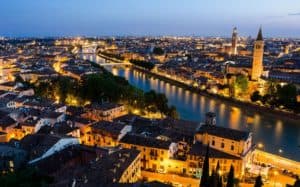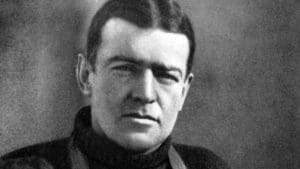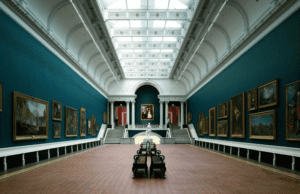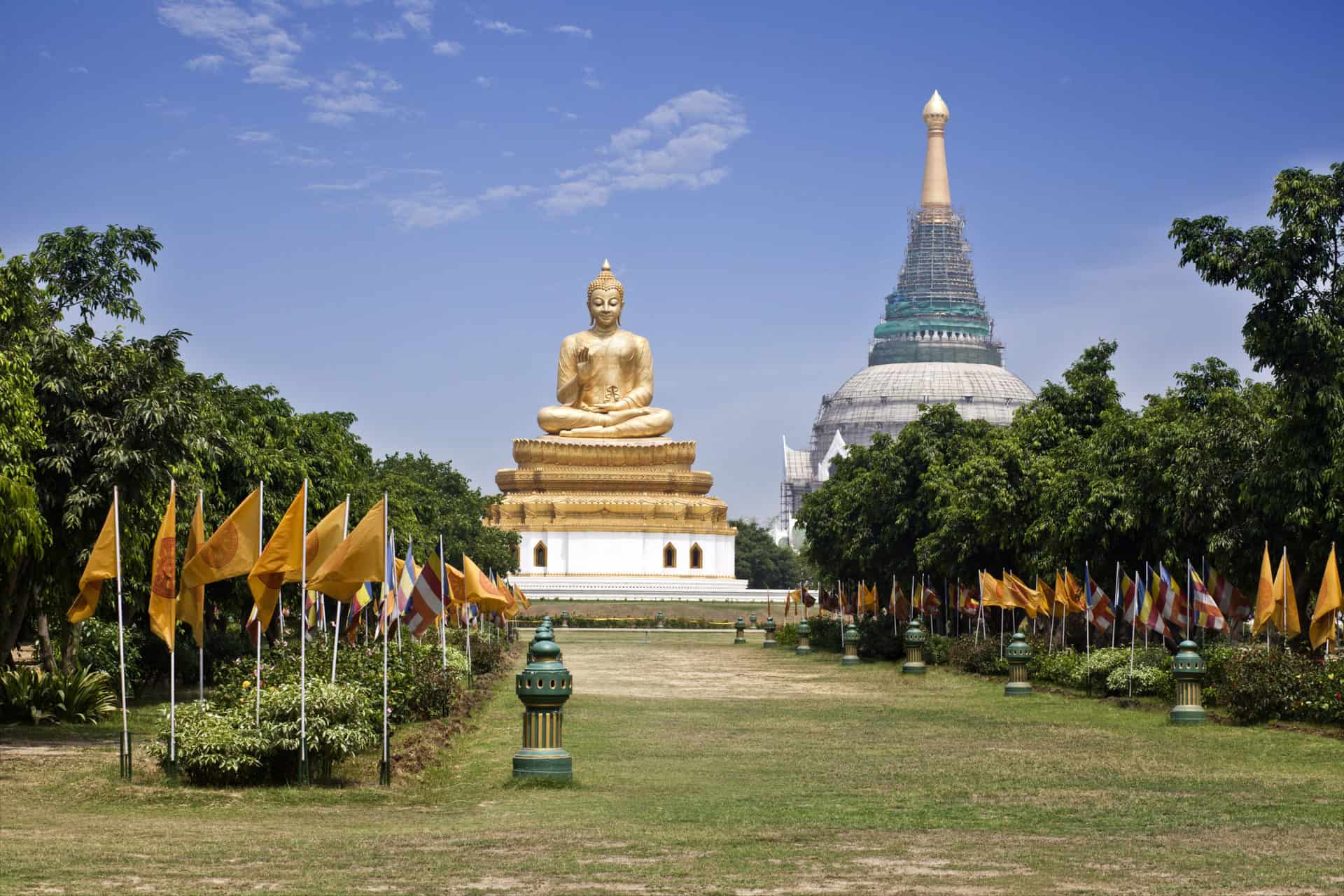The Camel Festivals of Rajasthan: Colour and Competition in the Desert

Updated On: April 04, 2024 by Raghda Elsabbagh
Rajasthan, with its undulating sand dunes and expansive deserts, is a land steeped in cultural splendour. At the heart of this splendour are the annual festivals which celebrate the traditional camel—an animal integral to the life and lore of the desert. These festivals are not just about the camels; they are a vibrant tapestry of colour, music, and competition that showcase the rich culture and traditions of this Indian state. Travellers from near and far are mesmerised by the spectacle of elaborately decorated camels parading against the backdrop of Rajasthan’s historic forts and palaces.

The most prominent of these festivals is unfurl in Bikaner, a city that has hosted the renowned Camel Festival for years. Here, the camel, often referred to as the ship of the desert, enjoys centre stage with a range of competitions—from camel races to the judging of the best-decorated camel. These events not only provide entertainment but also help support local economies and offer insights into the art of camel breeding and conservation. The festivals blend the love for tradition with the excitement of competition, attracting participants and spectators, both local and international, heightening the cultural exchange and boosting the tourism industry.
Table of Contents
Historical Background of Camel Festivals of Rajasthan
In this section, we explore the significant role that camels have played in the cultural and historical tapestry of Rajasthan and the origins of the spectacular camel festivals that celebrate these majestic animals.
Significance of Camels in Rajasthan
Camels, often referred to as the ‘ship of the desert,’ are deeply interwoven with the fabric of Rajasthan’s history. These resilient animals have not only been crucial for transportation across the challenging terrain of the Thar Desert but also hold a revered place in local culture. They have been indispensable to the traders, warriors, and nomads of this arid region, shaping both the economy and the social structure. The reliance on camels fostered a unique bond between the people and these animals, giving rise to a rich array of traditions centred around camel care, breeding, and festivities.
Origin of Camel Festivals
Rooted in a rich historical context, the origin of camel festivals in Rajasthan can be traced back to the time when these animals were pivotal to survival in the desert. Over time, vibrant festivals emerged to honour the essential role camels played. These events were more than mere celebrations; they served as a testament to the enduring bond between the people of Rajasthan and their cherished camels. The Bikaner Camel Festival was initiated to showcase this connection, emerging as a hub for camel traders and evolving into an enchanting cultural experience replete with music, dance, and a showcase of the camels’ astonishing abilities.
Camel Festival Overview
The Camel Festival in Rajasthan is not merely an event; it’s a vibrant showcase of tradition wrapped in the warm hues of the desert.
Key Dates and Details
The Bikaner Camel Festival is a significant event held annually in January. This celebration typically unfolds over two days in the heart of Rajasthan, drawing masses to witness the grandeur of camels. In 2024, the festival is scheduled to take place from January 13th to 14th, presenting an array of festivities that pay homage to the indispensable ship of the desert.
Festival Activities
Participants and guests at the Camel Festival are treated to an extensive range of activities. The event kicks off with a procession of exquisitely adorned camels, commencing from the historic Junagarh Fort and culminating at Dr. Karni Singh Stadium. Visitors can look forward to witnessing camel dances, tug-of-war competitions, and camel rides. Additionally, beauty pageants and best breed competitions put the spotlight on these magnificent creatures. The festival also features colourful performances that bring alive the spirit of Rajasthan and its rich cultural tapestry.
Cultural Celebrations
As we delve into the heart of the Camel Festivals of Rajasthan, the cultural celebrations stand out as a vibrant testament to the region’s rich heritage. These festivals are not only a showcase of majestic camels but also a stage for the colourful expressions of Rajasthani music and folk dance.
Music and Dance Performances
In the midst of the desert expanse, the air comes alive with the sound of traditional Rajasthani music, a vital part of the cultural fabric. Performers in intricate attire play folk instruments like the harmonious ‘sarangi’ and the high-pitched ‘shehnai’. The melodies are often accompanied by the rhythmic beats of dholak drums that set the tone for exuberant dance performances.
The dance performances are a sight to behold, featuring some of the most iconic folk dances of the region. The ‘Ghoomar’ dance, for example, is characterised by its graceful movements and swirling robes, creating a visual spectacle synonymous with Rajasthani folklore. In contrast, the vigorous ‘Kalbelia’ dance, often performed by the Kalbelia tribe, features swift, serpentine movements that captivate onlookers.
Traditional Folk Activities
Beyond the performances, traditional folk activities provide an interactive canvas for visitors to experience the local culture hands-on. Festivities such as turban-tying competitions and camel decoration contests highlight the creative spirit and skills of the locals. These activities reflect the importance of camels in daily life and pay homage to their significance in Rajasthani culture through colourful adornments and embellishments.
Moreover, the festival features a myriad of stalls laden with handcrafted items, showcasing the work of local artisans and craftspeople. Each piece tells a story of tradition and artistic legacy, from intricately designed jewellery to handwoven textiles. This blend of commerce and culture at the Camel Festivals not only entertains but also educates visitors about the enduring crafts of Rajasthan.
The Camel Competitions
We explore the heart of desert festivity in Rajasthan, zeroing in on the traditional and vibrant camel competitions that draw crowds from all over. These competitions showcase the beauty, agility, and artistic flair of camels, bringing a cultural significance that resonates with both locals and tourists.
Camel Races and Dance
The Camel Race is a quintessential show of speed and endurance, where adorned camels sprint across the desert sands to the cheers of an excited audience. This race is not only about speed; it’s a display of the incredible training and bond between the camel herders and their charges. Following this exhilarating event is the Camel Dance, a unique spectacle where camels perform to local tunes, displaying intricate footwork that captivates onlookers. This dance competition highlights the camels’ training and the skill of their handlers as they move in rhythm to traditional Rajasthani music.
Fur Cutting and Decoration
Fur Cutting Design is an artistic category that transforms camels into living canvases. Skilled artisans meticulously trim the camel’s fur to create elaborate patterns and designs that often reflect traditional motifs. Meanwhile, the Best-Decorated Camel competition is a feast for the eyes, as owners adorn their camels with vibrant bridles, necklaces, and anklets, showcasing Rajasthan’s rich textile and craft heritage. Each camel is transformed into a work of art, with every accessory chosen to enhance its natural elegance, contributing to the festival’s kaleidoscope of colours.
Local and International Participation
In Rajasthan’s Camel Festivals, the vibrant participation extends beyond local borders, attracting enthusiasts and spectators from across the globe.
Engagement of Tourists and Locals
Tourists flock to Rajasthan’s Camel Festivals, eager to witness the fascinating blend of culture and competition that unfolds in the desert. The Bikaner Camel Festival, which takes place in January each year, captivates visitors with traditional arts, crafts, and spirited camel competitions. We see locals taking immense pride in adorning their camels, engaging in folk dances and adding to the festival’s exuberance. Both groups—the locals and the tourists—get to share experiences that deepen their appreciation for the state’s heritage.
International Camel Festival
The International Camel Festival, a separate event, is renowned for its cross-cultural charm, with attendees from varying nationalities. Specifically, the Maru Mahotsav in Jaisalmer, known as a cultural odyssey, extends an exquisite display of Rajasthani folk music and dance, attracting a global audience. Additionally, the festival’s competitive events, like camel races and turban-tying contests, garner international attention, spotlighting the skilful participation of camel owners from neighbouring states and the enthusiastic involvement of visitors from afar.
Tourism and Economy
The Camel Festivals in Rajasthan are a linchpin in the region’s tourism sector, significantly boosting the local economy through increased footfall during the festive season.
Boost to Local Businesses
The influx of visitors keen on experiencing the spectacle of the Camel Festival brings a robust period of trade and revenue for local shops and markets. Stalls and boutiques brimming with Rajasthani handicrafts become a hub for tourists seeking to purchase authentic souvenirs and artisanal goods, driving the sales of items such as textiles, jewellery, pottery, and more. This seasonal commerce is a key contributor to sustaining the livelihoods of local craftsmen and traders.
Role of the Government
The Department of Tourism plays a pivotal role in promoting the Camel Festivals of Rajasthan as a major tourist attraction. By organising and marketing these events, the government actively works towards enhancing the visibility and appeal of the region’s unique cultural heritage. These efforts are not only aimed at attracting domestic and international tourists but also at preserving the traditional practices and festivals which form an integral part of Rajasthan’s identity.
Cuisine and Refreshments

At the Camel Festivals of Rajasthan, we are just as passionate about the food as we are about the camels. Prepare to savour the rich, traditional cuisine of Rajasthan, where each dish tells a story of cultural heritage and local produce.
Local Sweets and Drinks
We indulge in an array of local sweets such as Ghevar, Churma, and Balushahi, which offer a delightful taste of Rajasthan’s royal past. The sweets are made using traditional recipes that have been passed down for generations. To complement these treats, we sip on Masala Chai, a spiced tea, or Chaach, a refreshing buttermilk drink, perfect for the arid desert climate.
- Sweets: Ghevar, Churma, Balushahi
- Drinks: Masala Chai, Chaach
Camel Milk Products
Camel milk is an integral part of the local diet in Rajasthan, renowned for its health benefits. We include camel milk in a variety of products, including the highly nutritious Camel Milk Tea and Camel Milk Lassi. These drinks not only provide sustenance but also introduce visitors to unique flavours that can only be experienced here.
- Camel Milk Tea: A comforting beverage with subtle flavours
- Camel Milk Lassi: A creamy, yoghurt-based drink enriched with camel milk
Conservation and Breeding
In the arid expanse of Rajasthan, the conservation and breeding of camels play a pivotal role in sustaining the cultural and ecological fabric of the desert.
Camel Breeding Practices
Camel breeding in Rajasthan involves a deep understanding of the genetic, nutritional, and health management aspects unique to these desert-adapted animals. Selecting camels for breeding purposes is a meticulous process, with a focus on desired traits such as endurance, milk production, and temperament. We ensure that these breeding practices are conducive to maintaining the camel’s genetic diversity, which is crucial to their survival in challenging desert conditions.
Environmental Impact
Camels are integral to the ecosystem of Rajasthan’s deserts, serving as a key species in the delicate environmental balance. Their ability to forage on sparse vegetation and travel long distances without water makes them impeccably suited to desert life. We’re cognisant of camels’ role in helping to prevent desertification through their grazing habits, which help maintain the health of desert flora and preserve the soil. It’s essential that conservation efforts and breeding programmes consider the environmental impact of safeguarding the desert ecosystem where these camels thrive.
Travel and Accommodation
When planning your visit to the vibrant Camel Festivals of Rajasthan, considering your travel and accommodation options is paramount to ensure a comfortable and enjoyable experience. We’ll address how to reach Bikaner and where to stay in Rajasthan, making your journey to these colourful events as smooth as possible.
Reaching Bikaner
By Air: Bikaner doesn’t have its own airport, but the nearest one is Jodhpur Airport, from which you can hire a car or catch a bus to reach Bikaner in about four to five hours. If flying into Delhi, you could take a connecting flight to Jodhpur or opt for trains or buses which offer regular services to Bikaner.
By Train: Bikaner is well-connected to major Indian cities through the rail network. Direct trains are available from cities like Delhi, Kolkata, and Mumbai. The journey by train offers a glimpse of the beautiful desert landscapes that will set the mood for the festivities to come.
By Road: A road journey can be an adventure in itself. Bikaner is accessible via National Highway 11, which connects it to other cities in Rajasthan. Travelling by car or hiring a private vehicle offers flexibility and the opportunity to take in the desert scenery at your own pace.
Staying in Rajasthan
Hotels: Rajasthan is known for its hospitality, and you’ll find accommodations ranging from luxury to budget-friendly hotels. Many provide amenities such as guided tours and cultural evenings so guests can enjoy local experiences in comfort.
Traditional Stays: For an authentic experience, consider staying in a haveli or a heritage property. These stays offer an intimate look into the Rajasthani architecture and cultural heritage, and you can find options in Jaisalmer close to the Maru Mahotsav, a cultural highlight in the heart of the desert.
Whichever mode of transport you choose and wherever you decide to stay, planning in advance is key to ensure a trip that immerses you completely in the splendour of Rajasthan’s Camel Festivals.
Practical Information
When attending the vibrant Camel Festivals of Rajasthan, it’s essential to gather some practical information to enhance your experience. Here, we provide insights on navigating these captivating events for newcomers and advice on staying safe while adhering to local norms.
Tips for First-Time Visitors
- Timings and Locations: The Maru Mahotsav, also known as the Desert Festival, usually takes place in February in Jaisalmer. First-time visitors should note that the festival lasts for three days, commencing on 21 February and culminating on 24 February. If you’re considering the Bikaner Camel Festival, it’s held annually around mid-January.
- Accommodation: Book your accommodation well in advance as hotels can fill up quickly due to the influx of tourists.
- Transportation: Ensure you arrange your transportation to and from the festival locations. Local transportation can be crowded, so planning is critical.
- Cultural Etiquette: Show respect for the local culture by dressing modestly and asking for permission before photographing people.
Safety and Regulations
- Stay Hydrated: Rajasthan’s desert can be deceptively dry. Always carry water with you to avoid dehydration.
- Adhere to Guidelines: Respect the festival regulations set by the government and organisers. This could include security checks or restricted areas to ensure everyone’s safety.
- Personal Belongings: Keep an eye on your belongings; although the festivals are generally safe, it is wise to be cautious in crowded areas.
- Health Services: Familiarize yourself with the location of first aid stations or contact points for any emergencies.
Frequently Asked Questions

We have compiled essential information regarding the Camel Festivals of Rajasthan to satisfy your curiosity and enhance your understanding of this vibrant desert celebration.
When are the Bikaner Camel Festival dates for 2024?
The Bikaner Camel Festival is scheduled to be a colourful spectacle taking place on 13 and 15 January 2024.
Where in Rajasthan is the renowned camel race conducted?
The illustrious camel race is held in the sands around Bikaner, with a prominent event taking place at the Raisar Village, just outside the city limits.
What are the main attractions and activities at the Camel Festival?
Key attractions and activities at the festival include camel parades, folk music, dance performances, and competitions like camel beauty contests and races, which together offer an immersive cultural experience.
How do participants and camels prepare for the Festival competitions?
Participants dedicate weeks to grooming their camels, adorning them with colourful saddlery and practising for various events to showcase their camels’ strength and beauty at the festival.
What traditional cuisine is available at the Bikaner Camel Festival?
Visitors can savour local Rajasthani delicacies, including a variety of spicy snacks, sumptuous sweets, and traditional beverages that are a hallmark of the region’s culinary heritage.
Which Rajasthani annual fair is celebrated for its notable camel race?
The Pushkar Fair, also known as Pushkar Camel Fair, is another annual event celebrated for its notable camel races, attracting thousands of camels and their owners for competitions and trading.






